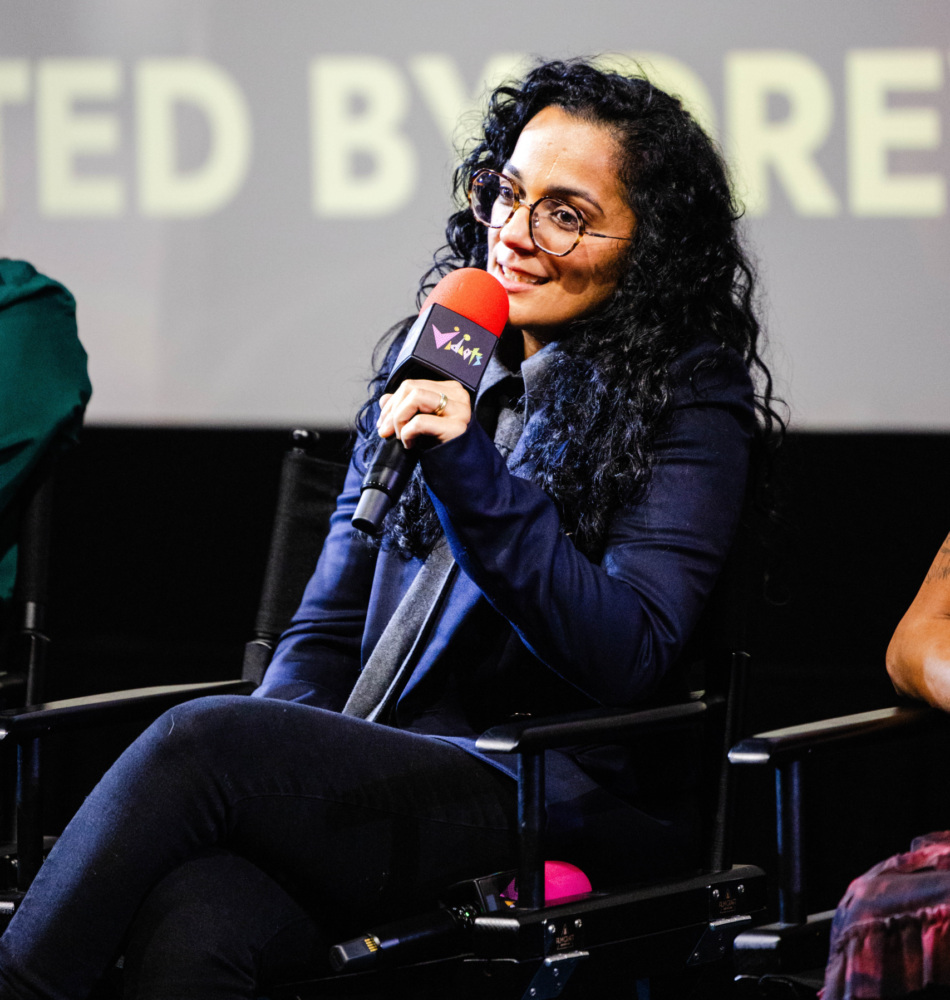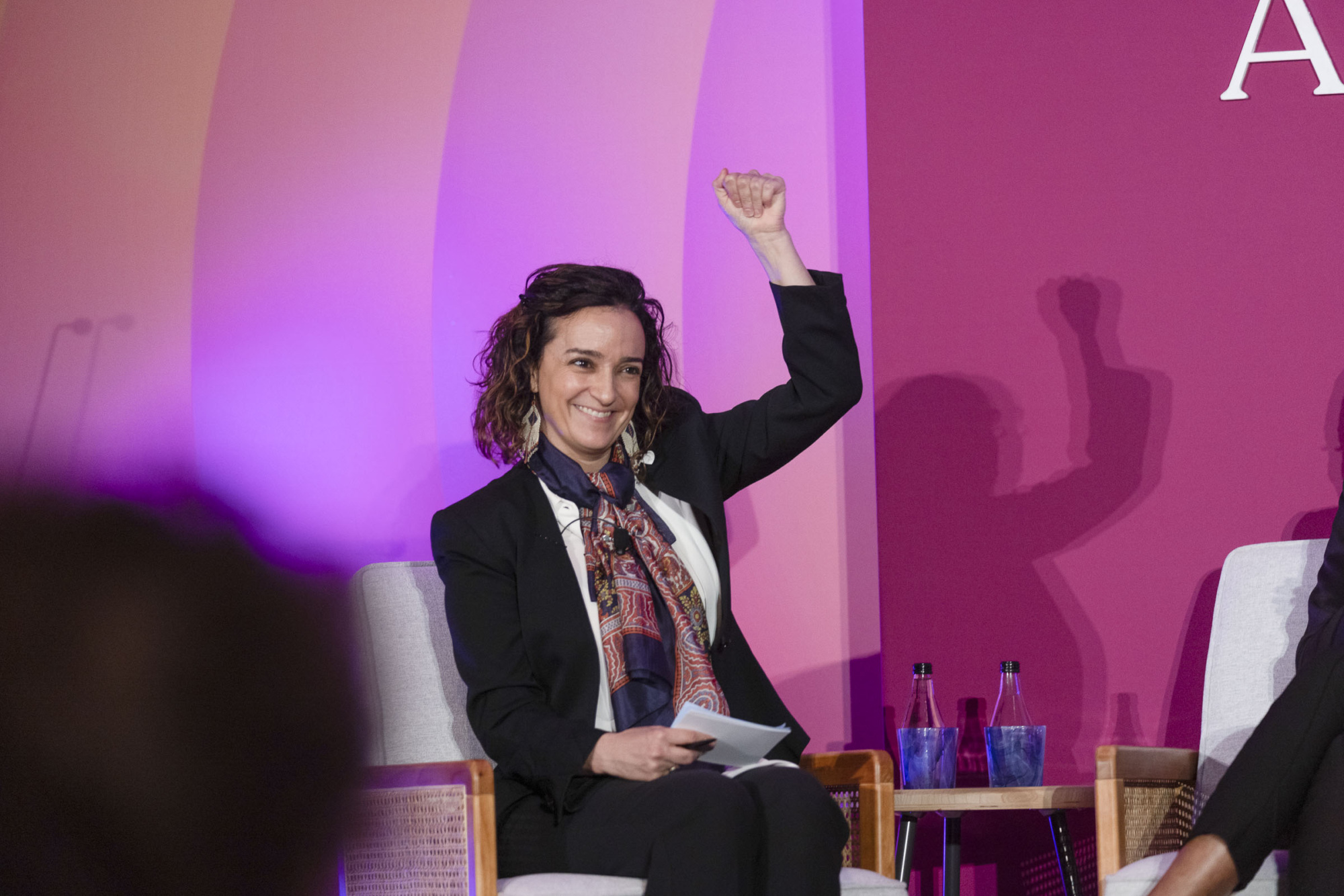Q: Tell us about yourself and your journey to making this million-dollar + investment in women and girls. What inspired you? What are you proud of?
I grew up in Iran before moving to the UK with my family at the age of nine. Not being able to speak English and adjusting to an entirely new way of life was extremely overwhelming. At that point, I felt like I was living on the margins of society and so I relied heavily on my education. This eventually became a key pillar that supported me in my early years in the UK as I developed my sense of self and came to understand my own agency.
This personal experience motivated me to launch my foundation, SAGE Innovation Centre, in 2019, to advocate for and empower women and children in the developing world who are uniquely vulnerable. Each year, I look at the global agenda and craft interventions to elevate and support women and children so they can reach their full potential. This not only empowers them individually but benefits their communities and societies writ large.
Now, I have worked extensively in Western Asia and Africa where bulging youth populations are particularly vulnerable. The patriarchal standards and negative societal values in these contexts tend to target and marginalize young girls. I want to break these stigmas and barriers and I want every young girl to have the access, choice, and opportunities that I have had in life. That’s what inspires me to work in international development. In 2020, I was proud that we managed to build a number of girls’ schools and provided PPE in southwest Iran and North-East Nigeria to ensure young girls had safe spaces for their education to continue despite the pandemic.
Q: What brings you joy in terms of your philanthropy?
Meeting and connecting with people on the ground is real a source of pride and joy for me. I have learned so much from them, and am continuously inspired by their fortitude and wisdom. On my visits to Afghanistan, I have met countless women who have sustained their communities and societies amidst unimaginable circumstances. And they don’t stop there. Despite the harshest challenges, they not only thrive but continue to fight for their rights, freedoms, and for a better future for their children. It is simply remarkable.
Q: What has been the most energizing thing about being part of the WMM community? What have you learned or gained?
So far as a new member, it’s been great to meet and connect with other like-minded members virtually, and share the stories that motivate us from our personal and professional lives. Everyone has been so kind and welcoming. I am looking forward to “a post-pandemic” world when we can connect in person.
Q: How do you think about impact in terms of your own giving? Can you describe the impact your funding has had on women and girls?
I believe that the way we deploy aid and philanthropic funds needs drastic change. We have to look at things from an entirely new perspective and get to the root cause of some of the perpetual issues instead of dealing with the symptoms alone. We also need to acknowledge how interconnected the needs and potential interventions are. COVID-19 has emphasized this dynamic as we witness a health crisis jeopardize and roll back development gains in multiple areas. The climate crisis is another example. It needs a great deal of attention, not only in reaching zero emissions by 2050 – a goal that garners most of the international focus – but also in building climate-resilient communities able to manage the economic, social, and health effects of this crisis. Developing nations and marginalized groups are at the forefront of this, especially women and girls who are the most vulnerable. So, I often look to deploy multifaceted interventions that can meet a number of the sustainable development goals at once. In Cote D’Ivoire, UNICEF has begun building classrooms out of plastic waste. The way the operational modalities have been built is that the women of the community source the plastics and sell them to the factory where they can be recycled into plastic bricks. These modern, sustainable classrooms are a fraction of the cost of a conventional classroom and they are fireproof, waterproof, and earthquake-proof. We are now looking into extending this circular model throughout the continent. We need more creative solutions like this that are capable of addressing multiple challenges simultaneously.
Q: Do you have examples where you have seen greater/exponential impact through your funding?
In Borno State in Northeastern Nigeria, we deployed a number of solar-paneled boreholes, managed by women of the community, that have provided clean drinking water to over 80,000 people. The systems have served more people than originally intended due to an influx of internally displaced people. With low day-to-day running costs combined with long-term durability, the systems provided high-quality service to multiple communities. In addition, the systems have provided an important water storage buffer for climate adaption purposes.
Q: How has being part of the WMM community impacted/influenced your philanthropy?
Being a part of the WMM community provides a guiding force that encourages and challenges me to look at development through a gendered lens, and to examine the gendered impact of giving that isn’t necessarily directed toward women and girls. This has seeped into my studies in International Relations and into how I see the world, driving me to analyze how inequality and gender discrepancies have affected our societies. The world would have been a totally different place today if women were running the show and directing resources.
Q: What does 2021 look like in terms of priorities, new opportunities for growth, and collaboration within your philanthropy?
This year I am focusing on girls’ education and procuring innovative climate solutions that will build resiliency within communities. We launched a digital campaign this March, “Everything But a Girl” which aims to raise awareness of the increasing number of child marriages and pregnancies. I will also be looking for innovative climate tech solutions that can be deployed in marginalized communities to address multiple development challenges at once. We know that partnerships and other forms of collaboration are often key to achieving scale and impact, so we are actively seeking opportunities to join forces where there is alignment.

